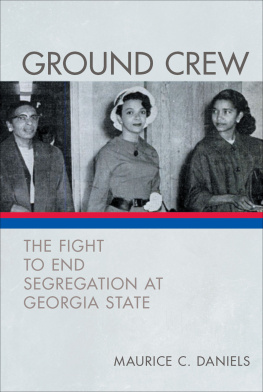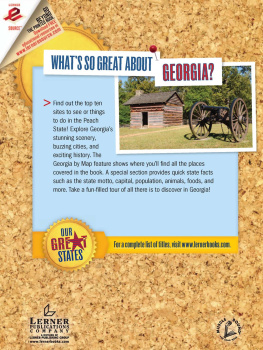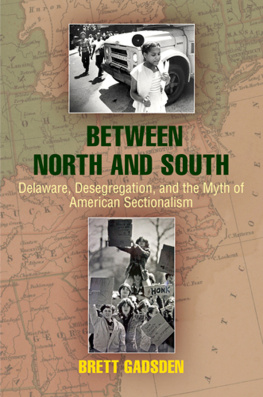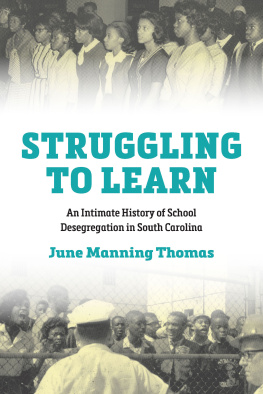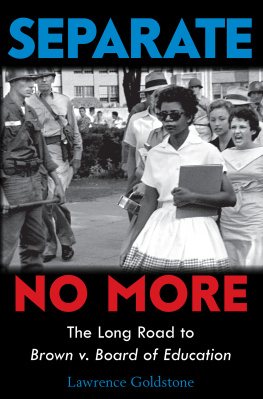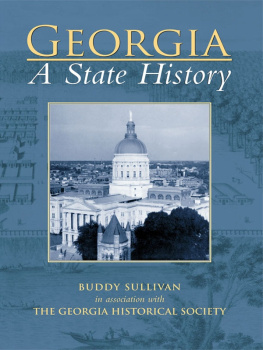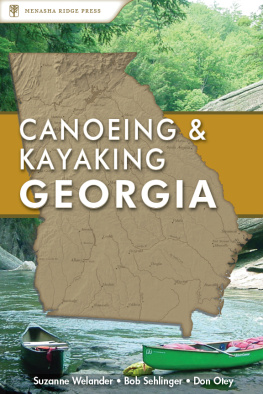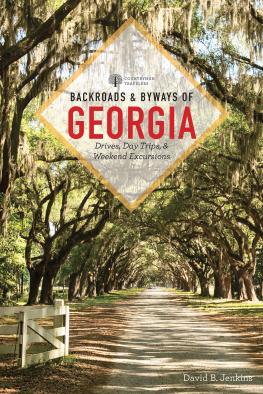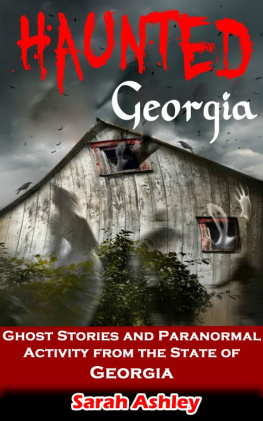Ground Crew
Ground Crew
THE FIGHT TO END SEGREGATION AT GEORGIA STATE
Maurice C. Daniels

2019 by the University of Georgia Press
Athens, Georgia 30602
www.ugapress.org
All rights reserved
Designed by Kaelin Chappell Beoaddus
Set in 10.75/13.5 Bulmer MT Std by Kaelin Chappell Beoaddus
Most University of Georgia Press titles are available from popular e-book vendors.
Library of Congress Cataloging-in-Publication Data
Names: Daniels, Maurice Charles, 1952 author.
Title: Ground crew : the fight to end segregation at Georgia State / Maurice C. Daniels.
Description: Athens, Georgia : University of Georgia Press, [2019] | Includes bibliographical references and index.
Identifiers: LCCN 2019018153| ISBN 9780820355955 (hard back : alk. paper) | ISBN 9780820355962 (e-book) | ISBN 9780820355979 (pbk. : alk. paper)
Subjects: LCSH: Georgia State College of Business Administration History. | SegregationGeorgiaHistory20th century. | African AmericansCivil rightsGeorgiaHistory20th century. | Civil rights movementsGeorgiaHistory20th century.
Classification: LCC LD1965 .D34 2019 | DDC 379.2/6309758dc23 LC record available at https://lccn.loc.gov/2019018153
To my father, Eddie Daniels Sr.,
my mother, Maggie C. Daniels,
and the descendants of
Bill and Margie Bogan and
Doc and Lucinda Daniels
Every time I take a flight, I am always mindful of the many people who make a successful journey possiblethe known pilots and the unknown ground crew without whose labor and sacrifices the jets flights to freedom could never have left the earth.
DR. MARTIN LUTHER KING JR.
CONTENTS
ACKNOWLEDGMENTS
This volume is part of a series of books and documentaries produced by the Foot Soldier Project for Civil Rights Studies (FSP) that includes the book Saving the Soul of Georgia: Donald L. Hollowell and the Struggle for Civil Rights and the public television documentaries Hamilton Earl Holmes: The Struggle Continues and Mary Frances Early: The Quiet Trailblazer.
The FSP chronicles the lives and stories of those foot soldiers for equal justice whose names may not be familiar but whose activism helped bring about sweeping social change in our nations history. Such work helps to illustrate how social change and social reform result from the hard work and dedication not only of the few celebrated historical figures whose names are preserved but also of the countless individuals whose contributions, though unrecognized, are nevertheless crucial.
In many ways, I was influenced to help create the FSP by my father, Eddie Daniels Sr., and the black community in my hometown of Rochelle, Georgia. My dad served as principal of the Excelsior Elementary and High School in Rochellethe segregated school for black children. In solidarity with other local black citizens, he successfully circumnavigated the barriers of the Jim Crow system and led the transformation of an under-resourced, moribund, two-room wood-clad school, which used hand-me-down books and recycled buses, to develop one of the great bastions of education in Georgia during the 1950s and 1960s.
The heroic, unsung activism and great moral courage of my father and other citizens of my hometown in the midst of blatant racial oppression helped shape my understanding and appreciation of the power of everyday people to achieve social change. My recollections of their powerful activism, magnificent spirit, and bold determination to improve their lot inspired me to chronicle the stories of unsung activists in the black freedom struggle.
I am indebted to a number of friends and colleagues who contributed directly to making this book possible. Diane H. Millers perceptive editorial direction, sharp eye, and meticulousness played a pivotal role in the organization, writing, and completion of this book. I am deeply grateful for her highly skillful editing and wise counsel. I am also appreciative of the editorial guidance of Charles Duncan, who helped me develop the conceptual framework of this manuscript during the writing of my book Horace T. Ward: Desegregation of the University of Georgia, Civil Rights Advocacy, and Jurisprudence. His depth of knowledge of civil rights history and superb editorial assistance have been invaluable.
I owe a great deal to Derrick P. Alridge for his encouragement, stewardship, and generosity with his time and talents in reviewing drafts of this manuscript. He provided indispensable recommendations and guided me to primary and secondary sources that enriched this study. I also thank Maurice J. Hobson and Dwight D. Watson for their scholarly insights and helpful commentary.
Christopher Strickland, FSP graduate research associate, made tremendous contributions to my research for this book. He spent many hours in libraries and archives unearthing historical documents. Christophers expert research skills, resourcefulness, and creativity greatly enhanced this research endeavor.
In 2000, the FSP completed the production of the documentary film Horace T. Ward: Foot Soldier for Equal Justice, which chronicled the struggle of Horace T. Ward and the NAACP to break the mantle of segregation in higher education in Georgia. In the research process for this film, my interviewees included NAACP stalwart and business leader Jesse Hill; civil rights lawyers Donald L. Hollowell, Constance Baker Motley, Horace T. Ward, and Vernon E. Jordan Jr.; and Myra Dinsmore, one of the plaintiffs in the lawsuit to end segregation at Georgia State. Those interviews provided my initial insight into the significance of the Hunt v. Arnold case. I am grateful for the valuable information these individuals shared, which became the foundation of my research for this book.
I am especially grateful to Crystal Freeman, the daughter of Barbara Hunt, who was the lead plaintiff in the Hunt case. Crystal has been a one-person band trumpeting the importance of acknowledging the efforts of plaintiffs and activists in the struggle to desegregate Georgia State. She provided a number of primary- and secondary-source documents that were invaluable in the research process.
I greatly appreciate the support and assistance of a number of archivists and librarians. Archivists at the Atlanta History Center, Emory Universitys Robert W. Woodruff Library, the Georgia Department of Archives and History, Georgia State Universitys Special Collections, the National ArchivesSoutheast Region, and the University of Georgia Libraries were especially instructive and helpful. Special thanks to Jill Severn, Christian Lopez, and Sheryl Vogt of the University of Georgia Richard B. Russell Library for Political Research and Studies; Courtney Chartier of the Stuart A. Rose Manuscript, Archives, and Rare Book Library; Derek Mosley and Anita Martin of the Auburn Avenue Research Library on African American Culture and History; Victoria Fox of Farrar, Straus and Giroux; Kayla Jenkins of the NAACP LDF; Amber Anderson of the Atlanta University Center, Robert W. Woodruff Library Archives Research Center; and Phyllis A. Perry, daughter of trailblazing photographer and journalist Harmon G. Perry.
My deepest gratitude to Mick Gusinde-Duffy, the University of Georgia Presss executive editor, who read my initial draft of this manuscript, for his encouragement and editorial recommendations. I also appreciate the reviews and tremendously helpful suggestions of the presss anonymous reviewers of this manuscript. Their cogent editorial recommendations helped me develop a more in-depth scholarly study.
I am grateful for the collective and expert work of Beth Snead, Jon Davies, Lea Johnson, and other able staff of the University of Georgia Press in the publication process. I also thank Barbara Wojhoski for her skillful copyediting and Pamela Gray for her excellent indexing work.
Next page
